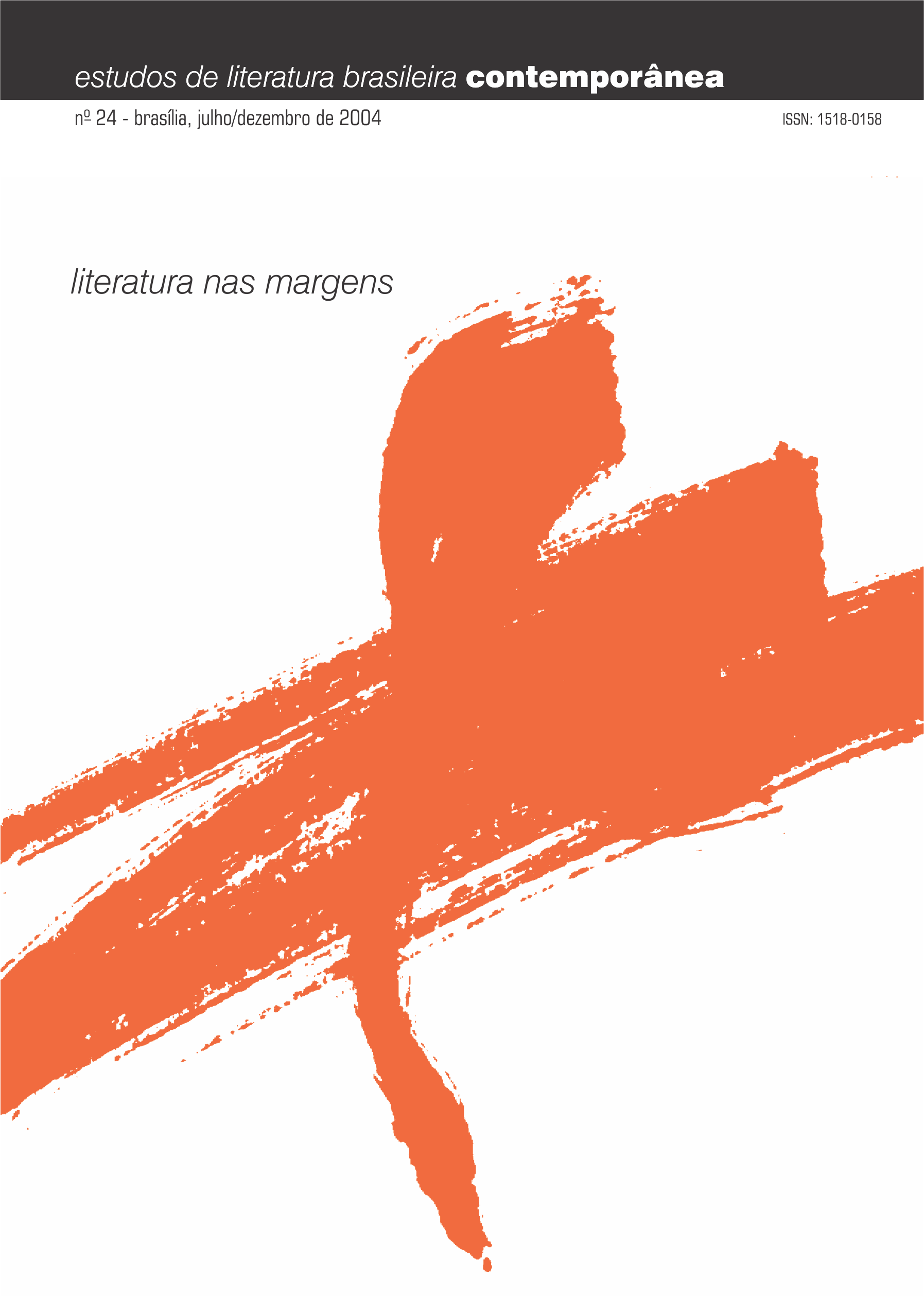Osman Lins e Jorge Luis Borges:
da literatura como retórica do amor
Abstract
Este ensaio analisa detalhadamente a influência que o conto de Jorge Luis Borges, “Pierre Menard, autor do Quixote”, exerceu sobre Osman Lins na criação de seu último romance publicado, A rainha dos cárceres da Grécia.
Downloads
References
ALMEIDA, Hugo (org.). Osman Lins: o sopro na argila. São Paulo: Nankin Editorial, 2004.
_____. “O cultor e a rainha”, publicado com o título “Segredos dos cárceres da Grécia”, em Suplemento Cultura de O Estado de São Paulo (17/3/1990).
BORGES, Jorge Luis. “Pierre Menard, autor do Quixote”, em Ficções. São Paulo: Globo, 1989.
_____. História da eternidade. São Paulo: Globo, 1993.
_____. O aleph. Rio de Janeiro: Globo, 1986.
_____. Otras inquisiciones. Madrid: Alianza Editorial, 1985.I
_____. Siete noches. México: Fondo de Cultura Enonómica, 1992.
_____. Discussão. São Paulo: Difel, 1986.
CANDIDO, Antonio. “A espiral e o quadrado”. Apresentação do romance Avalovara, de Osman Lins. São Paulo: Companhia das Letras, 1995, pp. 9-11.
CARIELLO, Graciela. “Osman Lins ”“ Jorge Luis Borges, encruzilhadas e bifurcações”, em ALMEIDA, Hugo (org.). Osman Lins: o sopro na argila. São Paulo, Nankin Editorial, 2004.
DALCASTAGNÈ, Regina. A garganta das coisas. Brasília:Editora UnB, 2000.
LINS, Osman. A rainha dos cárceres da Grécia. São Paulo: Melhoramentos, 1976.
_____. Avalovara. São Paulo: Melhoramentos, 1973.
_____. Do ideal e da glória. Problemas inculturais brasileiros. São Paulo: Summus, 1977.
_____. Evangelho na taba ”“ outros problemas inculturais brasileiros. São Paulo: Summus, 1979.
_____. Lima Barreto e o espaço romanesco.São Paulo: Ática, 1976.
_____. Diário de Osman Lins. Arquivo Osman Lins do Instituto de Estudos Brasileiros da USP. Trechos do diário foram publicados no Suplemento Cultura de O Estado de São Paulo (17/3/1990).
_____. Carta ao Jornal do Brasil (16/1/1977).
MARCO, Joaquín. “Sobre Avalovara de Osman Lins”, em Revista de Cultura Brasileña, n.º 41 (Janeiro 1976), pp. 115-22.
MOISÉS, Massaud. História da literatura brasileira: Modernismo. São Paulo: Cultrix, 1989.
MONEGAL, Emir. “Carnaval/Antropofagia/Parodia”, in: Revista Iberoamericana, v. 5, n.º 108-109 (Julho-Dezembro 1979), pp. 401-12.
Downloads
Published
How to Cite
Issue
Section
License
Authors who publish in this journal agree to the following terms:
a) The authors maintain the copyright and grant the journal the right of first publication, the work being simultaneously licensed under the Creative Commons Attribution License-Non Commercial 4.0 which allows the sharing of the work with acknowledgment of the authorship of the work and publication this journal.
b) Authors are authorized to enter into additional contracts separately, for non-exclusive distribution of the version of the work published in this journal (eg publish in institutional repository or as a book chapter), with authorship recognition and publication in this journal.
c) Authors are allowed and encouraged to publish and distribute their work online (eg in institutional repositories or on their personal page) after the editorial process, as this can generate productive changes, as well as increase the impact and citation of published work (See The Effect of Free Access).
d) The authors of the approved works authorize the magazine to, after publication, transfer its content for reproduction in content crawlers, virtual libraries and the like.
e) The authors assume that the texts submitted to the publication are of their original creation, being fully responsible for their content in the event of possible opposition by third parties.


